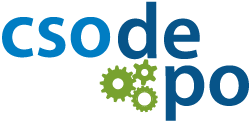PERITIA: Conference on Trust in Expertise in a Changing Media Landscape
Source: PERITIA
You are invited to register to the virtual scientific conference on Trust in Expertise in a Changing Media Landscape, scheduled for March 18-19 (coming Thursday and Friday). The conference is organized within the scope of the Horizon 2020 PERiTiA project, where the American University of Armenia (AUA) is a partner.
The conference brings together prominent international scholars to discuss how to best assess, establish, and maintain the credibility and trustworthiness of expertise in the rapidly changing media environment.
The researchers will present their findings on topics of trust and trustworthiness, expertise, science and technology, policy, and the media. The conference will revolve around climate change, the recent COVID-19 pandemic, conspiracy theories, science-related populism, trust in the media, among others.
KEYNOTE SPEAKERS
March 18, 2021
Prof. Onora O'Neill, University of Cambridge
Old and New Intermediaries -- The media are so named because they are intermediaries: they enable originators of communication to reach recipients. Traditional intermediaries – publishers, newspapers, broadcasters – also help ensure that communication meets certain ethical and epistemic standards. Online providers enable originators to reach recipients, but they are not publishers. They provide ‘platforms’, collect data from their users and market the distribution of content to clients. Platforms are therefore intermediaries of a very different sort, and cannot be regulated as publishers. However, the ethical and epistemic standards of the communication these new intermediaries enable could be improved by removing the anonymity that currently cloaks and protects clients who purchase the targeted distribution of content. This would help recipients to assess the content they receive, by revealing which ethical and epistemic standards the new intermediaries respect or flout.
Prof. Christoph Neuberger, Freie Universität Berlin
The Digital Transformation of the Knowledge Order -- Digitization fundamentally changes the way knowledge is generated, verified, presented, disseminated and appropriated in society. The Internet and especially social media facilitate access to knowledge and participation in knowledge processes. Science and journalism are opening up in part: They make research and editorial work more transparent and give citizens the opportunity to participate (citizen science, citizen journalism). In addition, independent knowledge projects such as Wikipedia are emerging. Media are losing their monopoly as gatekeepers who check knowledge before publication. As a result, false information can spread unhindered on the Internet. Or they are only examined afterwards (fact-checking). In addition, forms of pseudo-science and pseudo-journalism ('alternative media') can be observed. Public criticism of science and journalism ('lie press') as epistemic authorities is also increasing. How can they maintain the trust of the public in this environment? The lecture will explore this question.
March 19, 2021
Prof. Natali Helberger, University of Amsterdam
In the Digital Service Act we Trust – but will it create the conditions for trusting online platforms with the realization of public interests and fundamental rights? -- Over the past year(s), governments and society have entrusted digital platforms with important governance functions in our online world: to act as guardians of fundamental rights and the public sphere, to remove Covid-19 related disinformation, sanction politicians that invite anti-democratic behavior, and to further our rights to privacy and freedom of expression, even if doing so runs counter to business interests and shareholder expectations. Entrusting the realization of fundamental rights online, and the wellbeing of the digital society to a small number of non-European, globally operating commercial tech companies requires a solid governance framework. Such are the demands of democratic legitimacy and the positive obligations of governments to protect and promote our fundamental rights. In my contribution I will explore whether the proposed governance framework in the European Commission’s Digital Service Act can live up to these high expectations and create an environment in which our trust in platforms to perform these important governance functions is justified.
Prof. Michael Latzer, University of Zurich
Trust and Faith in Automated Algorithmic Selection -- Changing media landscapes are marked by a growing reliance on algorithmic selection in online applications – the automated assignment of relevance to selected pieces of information. This affects gatekeeping, agenda setting, power relations and, consequently, our perception of the world and our behavior. Algorithmic selection applications are institutions and agents in social and political decision-making. They represent expertise and experts, and reveal the religious character of digitalization. This keynote discusses how and with what implications the algorithmic co-construction of individual realities and social order build on and shape trust and faith in the context of social and political decision-making.
PANEL SESSIONS
In addition, there will be several Panel Sessions. Please write an email to [email protected] with a short introduction should you be interested in being invited to the panel sessions as a guest.
Dr. Arshak Balayan, AUA Lecturer and Researcher
A Media for Vigilant Social Creatures -- Dr. Balayan will present at the 2nd Parallel Panel Session titled “Psychological and Philosophical Perspectives on Trust in Media.” In his presentation, titled “A Media for Vigilant Social Creatures,” Dr. Balayan will present and evaluate cognitive scientist Hugo Mercier’s work viewing some of his claims in the context of other recent and relevant social, psychological, and communications research. He will also discuss the implications that information producers, consumers, and governments should draw from Mercier’s theory.
ABOUT PERITIA
Policy, Expertise, and Trust in Action (PERiTiA) is a multi-disciplinary project funded by the EU Horizon 2020 program. AUA is a partner in the project, with the AUA Acopian Center for the Environment as the host of the project at AUA. For more visit http://ace.aua.am/peritia or https://peritia-trust.eu/.
